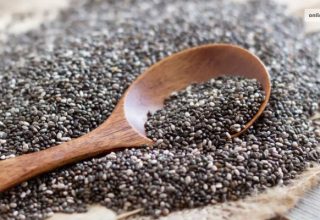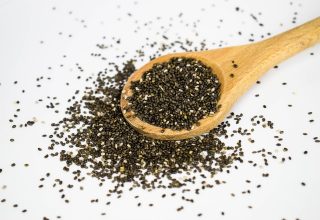Everything You Need to Know About Health Benefits of Celery
“Crunchy, fiber-packed yet low calories celery is not just a nutritious vegetable but a health food”
Celery is part of a vegetable family referred to as “umbellifers.” Scientifically, the Celery plant belongs to the Apiaceae family and we consume it as a vegetable. It has long fibrous stalks that people generally eat as a snack because of its low calorific value. Celery and celery seed extracts in China, Egypt, India, and Ancient Rome find a medicinal use. They have been used for things like pain relief, gout, and arthritis. This vegetable is found in all part of the world and form an integral part of specific cuisines although it’s most commonly used in salads and soups, or as a garnish for certain dishes.
Crispy and crunchy, this vegetable is recognized for its low-calorie content although the health benefits of celery go far beyond its use as important diet food. It contains useful vitamins, minerals, and phytonutrients. This is a handy on-the-go healthy snack and convenient vegetable that you can incorporate into salads, cooked dishes, and stir-fries. Because the celery stalk is mostly water (95% by weight); one can be forgiven for assuming that when it comes to nutritional value, there’s not a lot. On the contrary, celery contains a heavy dose of important minerals and vitamins.
Every part of the celery plant, including the leaves, stalks, and seeds are not only edible but rich in nutrients. Often, the leaves are added to stir-fries and soups. The seeds can be used as whole seeds, ground or extract also come with beneficial health benefits. You can use crushed celery seeds as a spice. Celery is not only low in calories but also rich in several nutrients that are beneficial to the human body. Among many other benefits of celery, it helps in reducing blood pressure, lowering arthritis pain, reduces cholesterol levels, detoxifying the body, and promotes overall health. Celery comes with demonstrated antioxidant and anti-inflammatory properties that keep you healthy and strong.
Contents
Top 10 Health Benefits of Celery
Let’s look at 10 well-known health benefits of celery:
1. Reduces Risk of Heart Disease

Eating this crunchy and nutrient-rich veggie may protect your heart by enhancing common heart disease biomarkers. A study done in 2009 found that it contributes to the reduction of blood lipids, including triglycerides, total cholesterol, and “bad” LDL cholesterol. A fascinating paradox is that celery may also lower blood pressure although it’s fairly high in terms of sodium content.
In China, a mixture of honey and celery juice has been used for reducing blood pressure for a long time with much success. In South Africa, Vinegar mixed with celery juice has been given to expectant mothers to help in lowering high blood pressure.
It’s high in potassium with a single celery stalk containing 166 milligrams, approximately 5-6% of your daily sodium needs. Ideally, that would mean that when you snack on five stalks of celery each morning, it provides you with one-third of your daily potassium needs. This helps in lowering BP, reducing the risk of stroke, controlling blood sugar, preventing kidney stones, and keeping your bones healthy.
2. Lowers Cholesterol
One major reason why this vegetable should form part of your low-cholesterol diet lies in its abundance of fiber-coupled the low calories content. In one study, it was found that phthalides in celery reduce cholesterol levels by up to 7%. Celery does not just reduce cholesterol levels but also reduces triglycerides levels while at the same time boosting good cholesterol (HDL) – thereby also treating hyperlipidemia.
3. Supports Digestive Health
The fiber found in celery, approximately one gram per large celery stalk is good for gut health as well as bowel regularity. Celery is also known to boost fullness for a long time, delaying hunger, which can reduce binge eating. Research shows that celery extract is good at combating the formation of ulcers. Celery’s diuretic effect comes with several digestive benefits. It can relieve bloating, treat water retention, and boost digestion.
4. Prevents Cancer

Celery is a cancer-protective vegetable as it contains polyacetylenes; chemoprotective compounds. The polyacetylenes can help in removing toxins thus prevent cancer formation. This is particularly important for breast cancer, intestinal cancer, and leukemia. Besides, polyacetylenes have antitumor, antibacterial, antiplatelet-aggregatory, anti-inflammatory, and cytotoxic properties.
Celery contains coumarins. These enhance the activity of specific white blood cells; effectively staving off cancer as well. In one study, celery seed extract was found to exert an anti-proliferation effect against dangerous gastric cancer. These antioxidant components of celery seek out free radicals, neutralizing them before they begin causing conditions like cancer.
5. Has Anti-inflammatory Properties
We can link chronic inflammation to several illnesses, including osteoporosis and arthritis. Because celery and celery seeds contain about 25 anti-inflammatory compounds it can offer protection against body inflammation. It’s also an important source of well-known conventional antioxidant nutrients such as Beta Carotene, Vitamin C, and manganese. Also, know the benefits of lemon.
These antioxidants also include dihydrostilbenoids such as lunularin plus furanocoumarins like psoralen and Pergapten. The antioxidant support is large because its phenolic nutrients assists in protecting the body against oxidative damage. This can be to blood vessels, cells, and organ systems.
Besides well-known antioxidants like flavonoids and Vitamin C, now scientists have identified several other types of antioxidant nutrients found in celery. According to World’s Healthiest Foods, phytonutrients found in celery include phenolic acids and flavones such as luteolin as well as flavonols like kaempferol, quercetin, dihydrostilbenoids, furanocoumarins, and phytosterols.
6. Keeps You Hydrated
Staying well-hydrated is vital for general health. Dehydration can cause constipation, mess with your thinking and affect your mood as well as lead to kidney stones. Because this vegetable is primarily water, one gets the hydration value by drinking its juice — or even eating it. 1-cup serving, for example, equates to 101g, 96.38 being water. That calculates to about 95% H2O. Therefore, if plain water is not your thing, consider drinking celery juice as a hydration alternative.
7. Reduces Asthma Symptoms
Asthmatic-related respiratory problems are common. The symptoms of asthma are chest pain or tightness, coughing, wheezing, and chest pressure. Regularly consuming celery can reduce many of these symptoms thus providing you with some relief. Vitamin C found in celery prevents damage from free radicals in body organs and reduces the severity of asthma.
8. Aids Weight Loss

Celery is among foods recommended for weight loss as its low in terms of calorie content. Regular consumption of this superfood provides the body with vital nutrients, essential minerals, and vitamins without the risk of adding weight. It boosts your lipid metabolism and comes pack with Vitamin B&C, electrolytes, antioxidants, and potassium.
Drinking celery juice before meals helps in reducing your weight as it makes you feel fuller. It, therefore, prevents overeating as it makes you reduce hunger pangs. The filling comes from the high fiber content of celery.
9. Detoxification Agent
Our bodies take in lots of impurities daily and it’s important to regularly flush out the toxins so as to avoid potential ailments. Celery has several properties that qualify it as an excellent detoxification agent. Every part of the celery plant detoxifies the body; the stalk, roots, leaves, and even the celery seeds. Regularly eating celery not only detoxifies the body but also helps you avoid kidney-related diseases such as liver issues, gall bladder, and pancreas.
10. Improves Sex Life

This vegetable can actually stir up your sex life. This is because each celery stalk contains androstenol and androstenone, which are essentially odor molecules. These unique molecules travel through the back of the throat and to the nose. In the process, they boost your arousal and also emit scents that have the potential of making you more desirable.
Celery extracts can also enhance male sexual performance, boost sperm count and even increase testosterone secretion.
Nutrition of Celery
Unbelievably, the low amount of calorie in celery makes it a calorie-negative food item. However, it contains major minerals and vitamins as well as certain flavonoids. According to the U.S. Food and Drug Administration National Data Nutrient database, about 100 grams of celery (raw) contains the following nutrients.
| Nutrient | Value |
| Water [g] | 95.43 |
| Energy [kcal] | 14 |
| Energy [kJ] | 57 |
| Protein [g] | 0.69 |
| Total lipid (fat) [g] | 0.17 |
| Ash [g] | 0.75 |
| Carbohydrate, by difference [g] | 2.97 |
| Fiber, total dietary [g] | 1.6 |
| Sugars, total including NLEA [g] | 1.34 |
| Sucrose [g] | 0.08 |
| Glucose (dextrose) [g] | 0.4 |
| Fructose [g] | 0.37 |
| Galactose [g] | 0.48 |
Eating Habits
To maximize the benefits of celery, incorporate the chopped or whole veg into snacks and meals. Fill 2-3 stalks with spiced nut butter for that satisfying sweet, crunchy yet salty snack. The veg makes a great addition to stir vegetable stews, fries, and soups. Raw celery adds texture and flavor to marinated veggies, garden salads; as well as chilled protein salads like tuna, egg, or white bean. Whether you are a juice fan or not, you have good reasons why you should consider incorporating this crisp veg juice into your routine eating schedule.
Unlike some vegetables, this veggie doesn’t lose most of its nutrients even when steamed thus retaining the benefits of celery. One study compared steamed, blanched and boiled celery, and discovered that steamed for 10 minutes, the vegetable maintains 83-99% of its antioxidants. Blanching and boiling, on the other hand, led to 38-41% antioxidant loss.
Below are several quick serving ideas:
-
-
- Add sliced celery stalks and leaves to stews, soups, casseroles, and stir-fries.
- Chop celery and add to your favorite chicken salad or tuna fish recipe.
- Enjoy eating peanut butter on the celery stalks.
- Use the celery leaves in your salads.
- When making squeezed carrot juice why not give it a new taste dimension by throwing in some celery.
- Braise chopped celery, onions, radicchio, and serve topped with walnuts or your favorite soft cheese.
-
If you are to get the most of the benefits of celery, it should be consumed within 7-days of buying. Additionally, the freshly cut celery has more healthy flavonoids.
Risk and Precautions
Containing 88 milligrams of sodium per each cup, celery is fairly high in terms of salt content for a standard vegetable. This may cause some people who carefully watch their salt intake to have some concerns about eating it. Other risks associated with eating large celery amounts include malnutrition issues and gastrointestinal problems. If you are dieting, you should be careful not to go overboard with celery as it’s very low-calorie and could potentially lead to malnutrition. Similarly, while fiber is definitely great for you, taken in excess can lead to bloating, gas and even diarrhea.
During pregnancy, Celery Oil and seeds are likely to be unsafe when taken by the mouth in the standard amounts found in medicinal products. Large celery amounts might cause uterus contraction and trigger a miscarriage. In addition, celery in medicinal amounts should not be used if you are experiencing kidney problems. There is also a possibility that celery might cause body inflammation.
Despite the numerous benefits of celery, this fibrous vegetable has also been consistently making the health list of “vegetables highest in pesticides”. Therefore, if you’re not using organic celery, taking excessive amounts of celery may increase your risk of exposure to chronic health problems.
Why Do We Recommend
Not only is celery an important ingredient in cuisines across the world but this fiber-rich veggie also comes with an overabundance of health benefits. It lowers BP, cholesterol levels, and promotes weight loss among many others. It detoxifies the body and is effective against arthritis-related pain. Other benefits of celery include treating rheumatism, relieving migraine, controlling cataracts onset, boosting heart health, reducing asthma symptoms, regulating body fluid balance, and boosting the immune system. Also, you must know the benefits of mango.
Summary
Apart from its diverse medicinal uses, this important veggie also finds its use across the globe in diverse cuisines. Not only are the health benefits of celery many but you can cook it with curries or use it raw in salads. It’s also among the most popular veggies for making stock and broth. This vegetable now forms part of cuisines among the American, Japanese, Irish, and Australians. While commonly used in soups, salads or as a garnish, you can also consume celery as a filling snack. Talk of a healthy vegetable-rich with health benefits!



